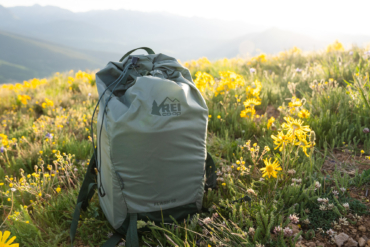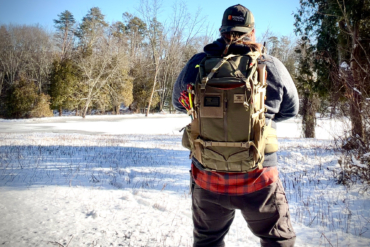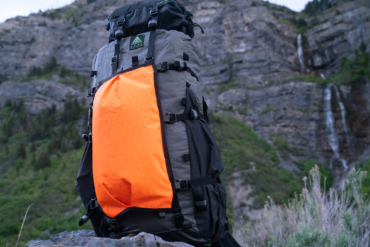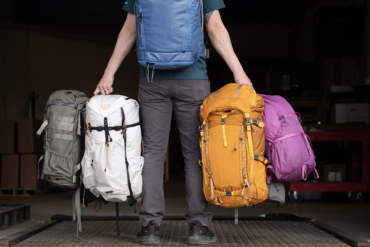A man in a village in India made the panel on my backpack. His name is Vankar Shamji, and he’s a weaver in Bhujodi, a tiny town near the Pakistani boarder.
Multicultural bling is hardly a new concept. But ETHNOTEK, a Minnesota company, takes it to a new level with packs and messenger bags connected to real people in faraway places around the planet.
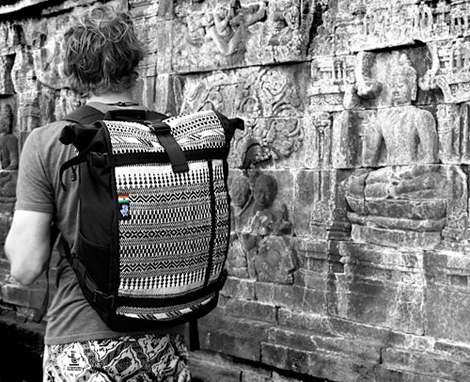
The company travels to purchase textiles directly from weavers and traditional craftspeople in India, Ghana, Guatemala, Indonesia and Vietnam. In their boutique workshop in Ho Chi Minh, Vietnam, the company cuts the one-off fabric swaths into panels that you attach to its packs and messenger bags.
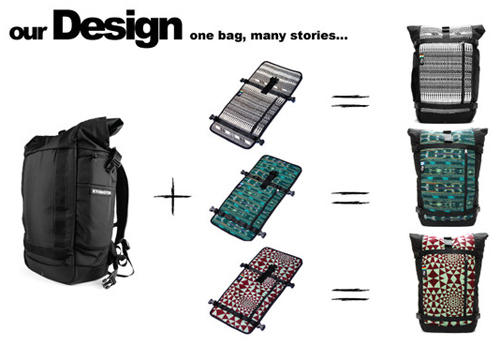
Each of the panels, called THREADS by the company, are removable, meaning you can change up the look of your bag with different fabrics. There’s no shortage of design options. ETHNOTEK regularly debuts new THREADS as company reps return from sourcing trips around the world.
By creating new demand with its packs, ETHNOTEK is helping to sustain traditional artisanal practices that are otherwise being overtaken by machines and large-scale factory labor.
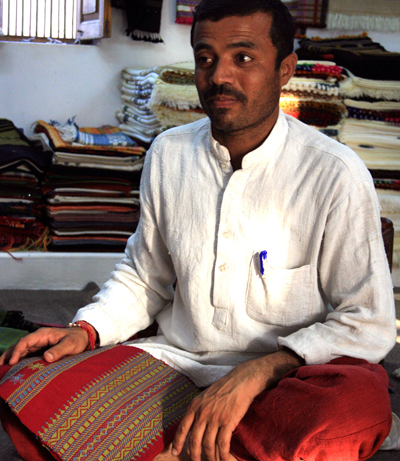
I tested the brand’s Raja Pack, a large roll-top style backpack that’s equipped with stash pockets and a laptop sleeve.
It’s a high-quality and somewhat pricey pack ($189, plus $29 for a rain cover) that nicely blends form and function. With about 1,500 cu. inches of capacity and a ton of nice features, the pack is perfect for everyday work or school use. For travel it would make a great carry-on.
The panels come from all over. As for the pack body, all of ETHNOTEK’s bags and backpacks are made in the company’s workshop in Vietnam, where the company founder lives six months out of the year.
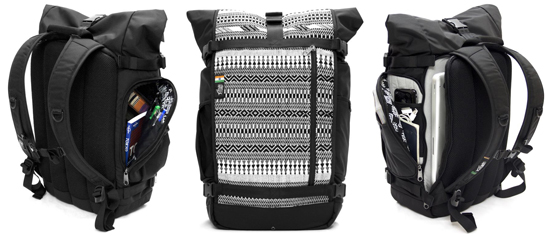
In a crowded marketplace, ETHNOTEK sets itself apart with a unique, feel-good cultural infusion in each pack. I have to admit, I think it’s pretty cool to actually know the name of the person who made what I’m wearing, and to know that he was paid a fair wage for his work.
—Patrick Murphy is an assistant editor.
